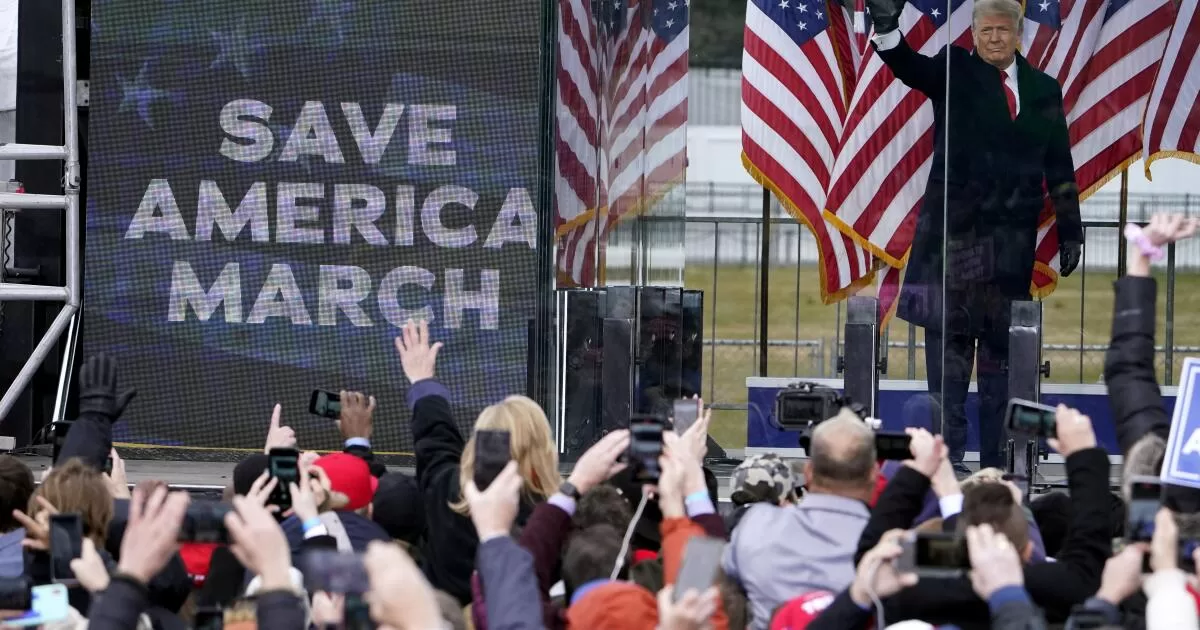Through a combination of luck, lawyering and above all the mercies of the U.S. Supreme Court, Donald Trump has managed to keep voters from learning about the mountain of evidence that special counsel Jack Smith has assembled to support criminal charges related to his efforts to overturn his 2020 loss to Joe Biden. But Trump will need one more break to keep more of the case against him from being disclosed before the election, and it will require an expansion of the Supreme Court’s already wildly expansive view of presidential immunity.
The justices have returned the case to U.S. District Judge Tanya Chutkan, who has the unenviable task of trying to apply the court’s delphic opinion to the manifold allegations in Smith’s indictment. Chutkan last week granted the government’s motion to file an “oversized” brief extending to 180 pages, or four times longer than the usual maximum of 45. The government contended that it needed the space to provide the trial court with a detailed analysis of why the charges in the case are not precluded by immunity.
The government’s bottom-line argument is that the entire indictment passes muster under the Supreme Court’s guidance. Prosecutors contend that nothing they propose to present relies on evidence that the court’s newly minted immunity principles forbid.
Consistent with a long-standing protective order in the case, the government filed the 180-page brief under seal last week, along with a far longer appendix of source materials. So we haven’t seen any of the evidence that makes up the prosecution’s case.
Here is where it gets interesting: The immediate task before Chutkan is to decide how much of the sealed brief should be made public. In the D.C. Circuit, as in most of the country, court filings are presumed to be publicly accessible. That presumption can be overcome — and court materials may remain under seal — if a party satisfies a six-factor test.
The government argues that all that should remain under seal are the names and other identifying information of potential witnesses who were not identified in the indictment, who could be subject to harassment. In the government’s view, that is, most of its brief should be made public. That would mean opening up a trove of inculpatory information about Trump, beginning with all the “content of statements made by others,” including summaries of grand jury transcripts, interview reports and material obtained through sealed search warrants.
Former Vice President Mike Pence’s account to the grand jury of Trump’s savaging him for refusing to break the law? Check. Former White House Chief of Staff Mark Meadows’ statements to the special counsel? Check. Any of Trump’s remarks as related by witnesses such as Cassidy Hutchinson? Check.
This isn’t the full trial that those who hunger for accountability for the former president hoped to see. It’s not even the evidentiary hearing or “mini-trial” that some saw as possible when the case returned to Chutkan. But it is an extremely powerful body of evidence that could harm Trump’s prospects if it comes out before the election. Talk about an October surprise.
Which is exactly why Trump will stop at nothing to try to keep it bottled up. He has until Tuesday to respond to the government’s motion arguing that most of the brief should be public (and until Oct. 10 file a motion on the longer appendix, which the government allows should be mostly redacted). His lawyers are certain to argue that making the material public would harm him grievously in violation of the Supreme Court’s guidance.
But the court’s immunity opinion doesn’t deal with whether evidence can be made public, only whether it can serve as the basis for criminal charges. Moreover, courts routinely exclude evidence from consideration by a jury in criminal cases — if it was turned up by an improper search, for example — while allowing it to be disclosed to the public at large. And of course some of the damning evidence against Trump has already been publicized by the House Jan. 6 committee.
Trump is nevertheless likely to try to leverage the court’s opinion to argue for a far broader privilege of preventing public disclosure of any evidence that can’t be used to charge him.
For instance, in explaining the need for broad presidential immunity, the court reasoned that a president could be deterred from bold action by “the peculiar public opprobrium that attaches to criminal proceedings.” Trump’s lawyers have recycled that phrase more than once in their filings and will probably try to cast it as weighing against any publication of the evidence. They could also point to the court’s emphasis of the need to safeguard a president’s confidential communications with senior officials.
Chutkan is unlikely to buy such arguments to recognize a new legal principle weighing against disclosure of the filing. But Trump’s real goal will be to keep the judge from unsealing the brief while he appeals the matter to the D.C. Circuit Court and potentially the Supreme Court, whose bullishness on presidential immunity has proved virtually boundless so far.
The pivotal question won’t be whether Trump ultimately prevails in his contentions but rather whether he can manipulate the legal process enough to run out the clock, keeping Smith’s damaging evidence from emerging before election day. If Trump can manage to delay the operation of law one more time, it will be a victory for him and a loss for the voters.
Harry Litman is the host of the “Talking Feds” podcast and the “Talking San Diego” speaker series. @harrylitman
